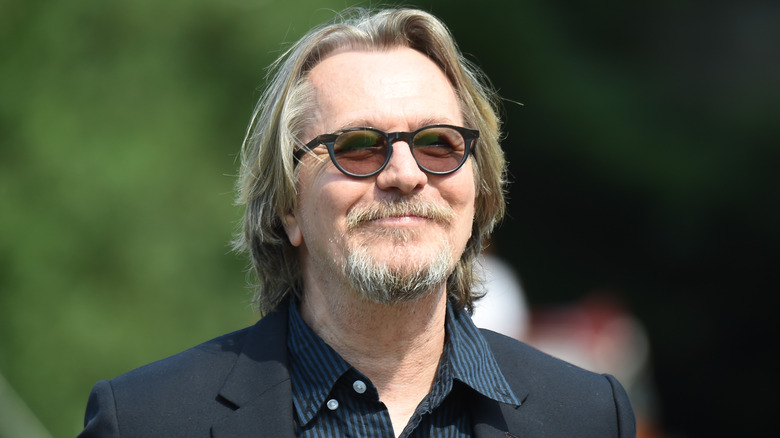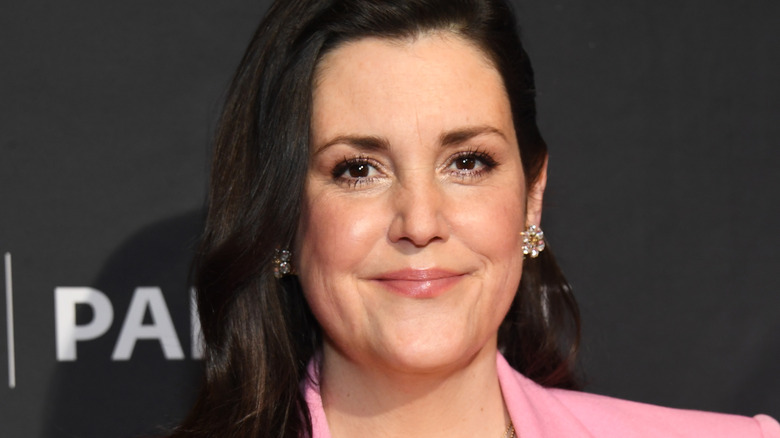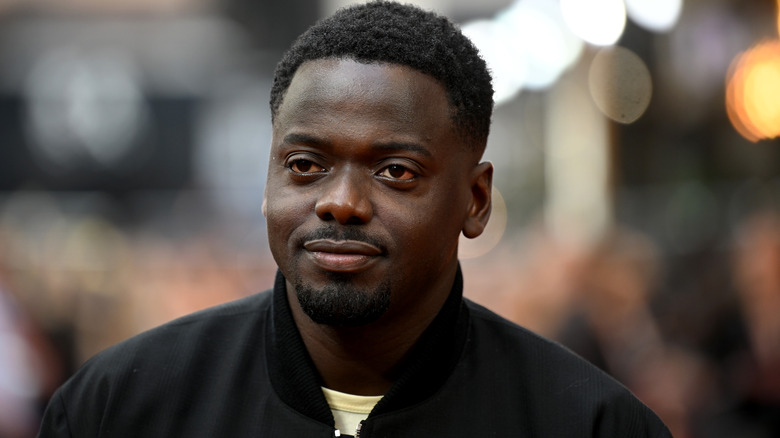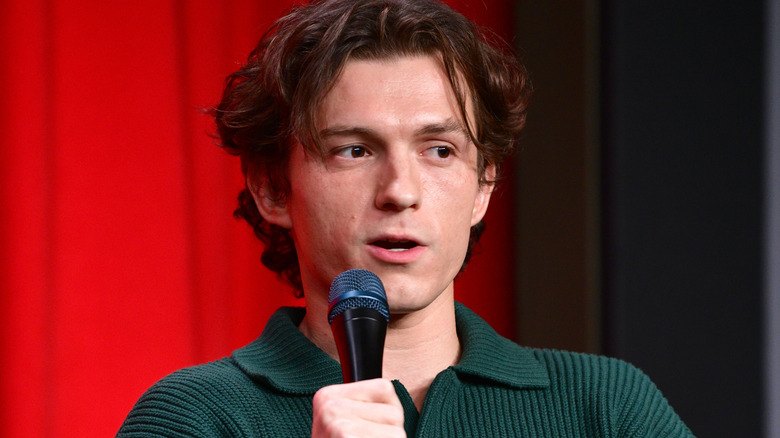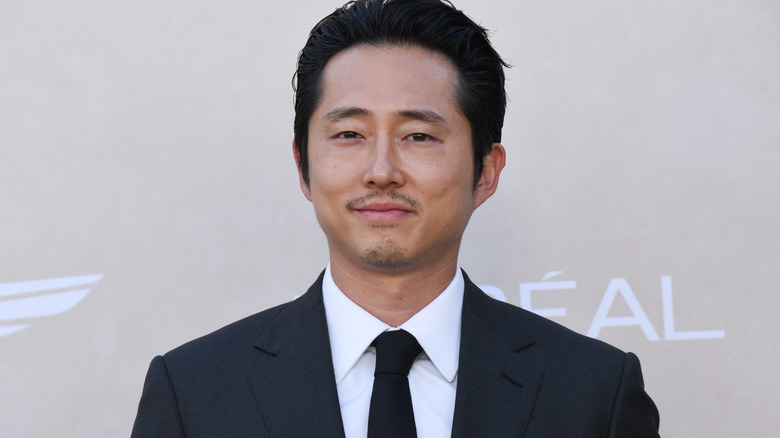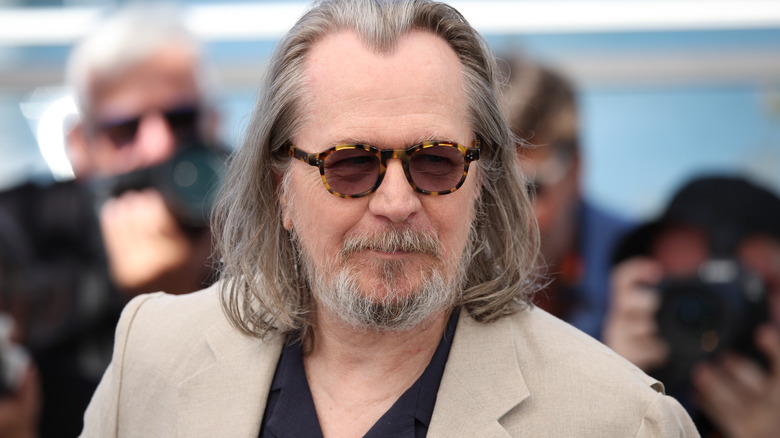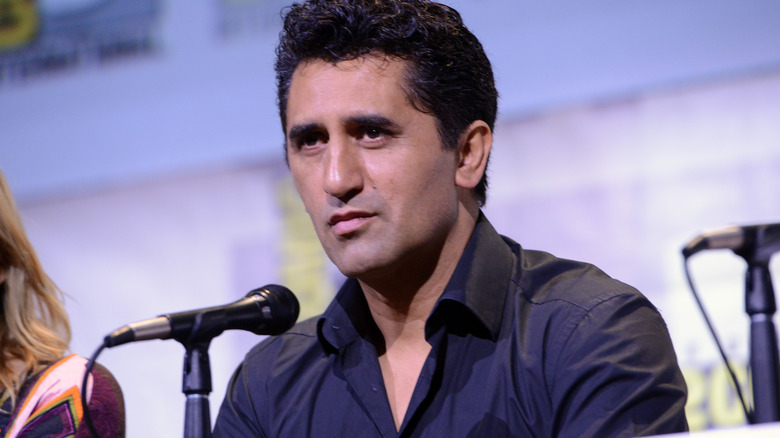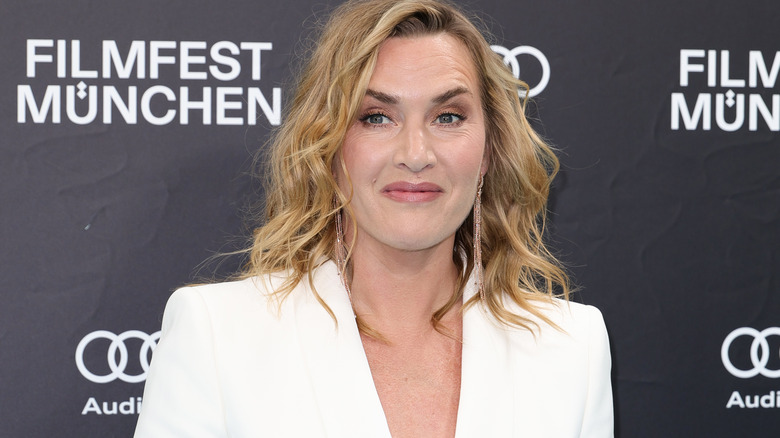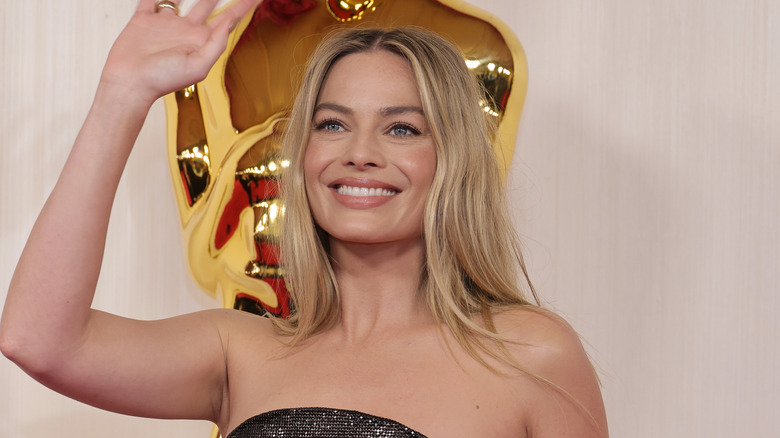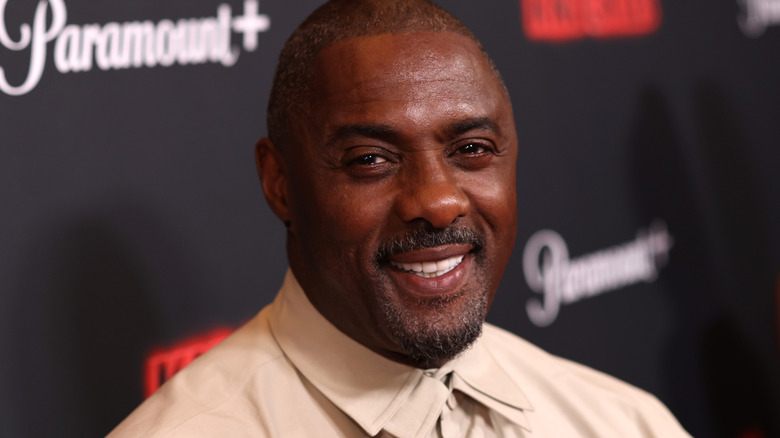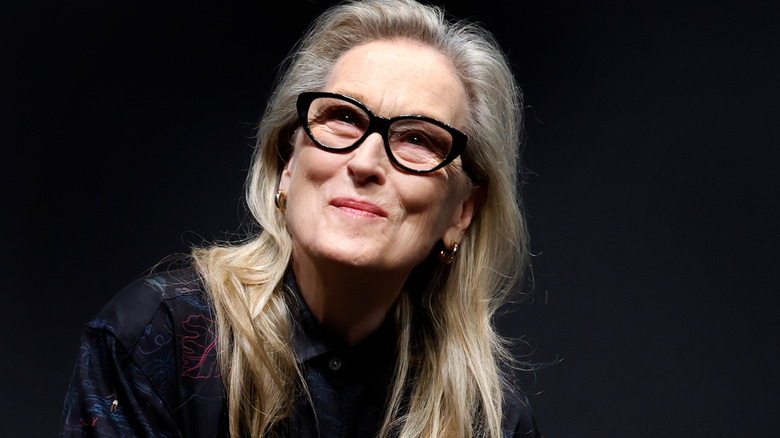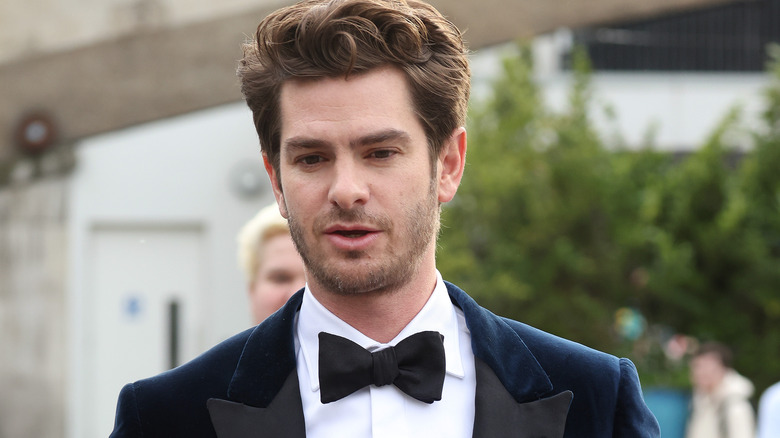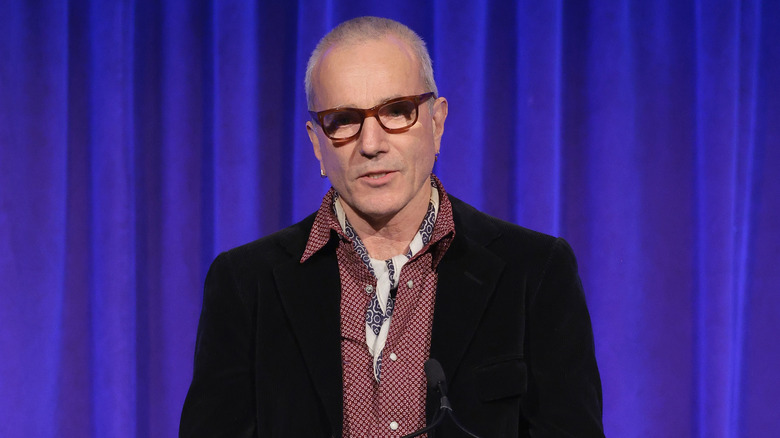Actors Whose Accent Game Will Blow You Away
Anyone can just recite dialogue. But what makes someone an actor is the way they say that dialogue — how much feeling they put into it, knowing when to be intense and when to be subtle, and so on. Basically, the ability to make the audience truly believe that the actor and the character are indistinguishable from one another. And one important aspect of all this is often an accent, whether it's the overall accent of a large part of the world or a more niche accent that is localized in just a single city, town, or even a specific neighborhood.
Not all actors can do a convincing accent. In fact, some of our best actors are actually responsible for some of the worst on-screen accents of all time. It's just not something all actors can do, even ones who are otherwise exceptionally talented. But being able to have a range of accents is a powerful tool in actor's skill set, and gives them access to a wider range of roles as well as making them much more convincing in those roles. And the truly great accent masters, the ones highlighted in this feature, are so good at them that many people are surprised when they found out what the actor's native accent is — given how great they are at hiding it behind other ones.
Melanie Lynskey
When your breakthrough role has you playing a character with an accent different than your own, people might not even realize that it's not your native accent. Such is the case with actor Melanie Lynskey, who arguably first achieved mainstream fame via her recurring role as the quirky Rose on the sitcom "Two and a Half Men." There was no reason to suspect that Lynskey wasn't born and raised in the U.S. by how perfect her Standard American accent was as Rose.
Lynskey is actually from New Zealand, a fact made obvious if you hear her speak in interviews. But she's spent so much of the last two decades playing characters with Standard American accents in shows like "The Last of Us" and "Yellowjackets," as well as movies like "Don't Look Up," that a lot of people are surprised when they hear her speak in her native Kiwi accent. In fact, in a 2024 appearance on "The Kelly Clarkson Show" (via YouTube), Clarkson began the interview by telling Lynskey, "Your voice is throwing me, man!," explaining that she'd never heard much of Lynskey's actual voice until that moment.
Daniel Kaluuya
It's one thing to play an entirely fictional character with a different accent than the actor's native one. There typically isn't a strict roadmap for the way a character talks, where they grew up, or any of that — so it's often just sort of up to the actor how they choose to approach the character's accent. However, when an actor has to do an accent for a real-life figure, it's an entirely different ballgame. People are often familiar with the way the figure spoke, so there's even more pressure to nail the accent.
Such was the case when Daniel Kaluuya took on the role of Black Panther leader Fred Hampton in the 2021 biopic "Judas and the Black Messiah." Kaluuya had already done convincing Standard American accents in various projects — most notably, the acclaimed psychological horror film "Get Out" — but he really needed to get the specific accent and vocal patterns of Fred Hampton down for "Judas" and did so exceptionally well. Kaluuya's accent range doesn't stop there either, as he also slipped with ease right into the unique Wakandian accent for his role as W'Kabi in 2018's "Black Panther."
Tom Holland
Tom Holland had pretty big shoes to fill when he became the latest actor to portray Peter Parker/Spider-Man on the big screen, the third actor to play the character within a 10-year span. And despite being born and raised in London, Holland quickly silenced any doubters of his ability to play one of the most all-American superheroes there is. He might not go out of his way to hit that specific Queens accent, but that doesn't seem to have been a huge priority for anyone else whose ever brought the character to the screen anyway.
Holland hasn't had an especially huge non-Spidey filmography, since the Marvel Cinematic Universe has kept him pretty busy with both solo "Spider-Man" films and pivotal roles in other Marvel movies. But his most recent non-web-slinger blockbuster, PlayStation game adaptation "Uncharted," saw Holland once again play a character with a Standard American accent, which he handled without even a trace of his native British accent slipping through. But Holland doesn't exclusively play characters from the States, nor does he only do screen work: 2024 saw him portray none other than Romeo — in his native accent — in a London stage production of the Shakespeare classic "Romeo and Juliet."
Steven Yeun
After a bad experience in his early acting days where a casting director tried to get the Michigan-raised Steven Yeun to do an "Asian accent," Yeun decided he was going to try to carve out a career for himself that didn't involve taking roles where he played stereotypical Asian characters with exaggerated accents — or any accent. He looked to fellow Korean actor John Cho as a model for how it was possible to be an actor of Asian descent and find success without having to do those kinds of demeaning roles.
Yeun thought his career was over before landing his role on "The Walking Dead." But once he did, it seemed to vindicate his choice to pursue a career on his own terms and not give in to the pressure to be a certain kind of character because of his ethnicity. However, when he was given the opportunity to star in writer-director Lee Isaac Chung's semi-autobiographical "Minari," based on Chung's upbringing as a South Korean immigrant in Arkansas, Yeun finally found a role worthy of doing an accent for.
Hailed as "perfect" by The New Yorker, Yeun's accent was just one part of his incredible performance in "Minari" that ended up literally making history — it resulted in Yeun being the first ever Asian-American to get an Academy Award nomination for best actor.
Gary Oldman
Gary Oldman is the kind of actor that never plays the same role twice — save for sequels, of course. Not only that, but he also never seems to do the same accent twice either. He can do subtle, like the humble Gotham City police officer-turned-commissioner Jim Gordon in Christopher Nolan's "Dark Knight" trilogy. He can do accents that play to the rafters, like the ridiculous pimp Drexl Spivey in the Quentin Tarantino-written, Tony Scott-directed "True Romance." And he can do everything in between those two extremes, with accents both real and made-up, and totally sell every single one.
Like Daniel Kaluuya, Oldman has also played real-life figures and put their accents on like a glove. He won an Oscar for playing Winston Churchill in 2017's "Darkest Hour," who was British like Oldman but had a very distinctive manner of speaking. Oldman followed that up with another Oscar nom the following year for playing American "Citizen Kane" co-writer Herman J. Mankiewicz in "Mank." Apart from those prestige projects, Oldman also did some wonderfully over-the-top accent work in the ultimate sci-fi cult classic film "The Fifth Element," giving the villainous Jean-Baptiste Emanuel Zorg what sounds like an American Southern accent for reasons known only to Oldman and filmmaker Luc Besson.
Cliff Curtis
Maori actor Cliff Curtis has been cited as an actor who can handle just about any ethnicity that he's been offered to play. Indeed, the New Zealand native is like a chameleon, able to play any type of person from any part of the world with any sort of accent and make it sound as natural as if it's his native dialect. Western audiences might best know him as Travis from "Fear the Walking Dead," where he spoke with a Standard English accent in one of his first lead roles in a non-New Zealand production. But on the big screen is where his range really shines.
In 1999's "Three Kings," Curtis played an Iraqi rebel named Amir Abdullah. He followed that up two years later playing a Latin gangster known as Smiley in "Training Day." That same year, he also played real-life Colombian drug kingpin Pablo Escobar in "Blow." The list goes on and on, with the only thing the characters having in common — apart from being played by Curtis — is that their accents are impeccable. Curtis discussed this with Slate, explaining, "I take the responsibility of playing another ethnicity very, very seriously, and I promise myself and those people that I will represent them with as much dignity and integrity as I can muster."
Kate Winslet
Kate Winslet is one of the best actors of her generation, and it's due in no small part to her ability to master a wide variety of accents. Winslet has been labeled an "accent nerd" (via the Los Angeles Times) by her longtime dialect coach Susan Hegarty, who Winslet has been working with since the actor's worldwide breakthrough role in 1997's "Titanic," where Winslet effectively masked her native British accent behind a Mid-Atlantic one.
Hegarty was specifically referring to Winslet taking on a Philadelphia accent, known as a Delco accent, for her role in the HBO series "Mare of Easttown" — which, of course, Winslet completely aced. In addition to doing American accents of various varieties over the years, Winslet also earned her long-overdue first Oscar win for 2008's "The Reader," where she played a former military officer complete with flawless German accent.
Winslet also played an Australian character in the 2015 comedy "The Dressmaker" opposite Australia native Liam Hemsworth, and you'd be none the wiser that they weren't both from the same place when they are sharing scenes together — which is always one of the toughest tests for an actor doing an accent.
Margot Robbie
Speaking of Australians, many people are surprised to learn that Margot Robbie isn't from the United States, given how many roles she plays where she puts on a Standard English accent with seemingly no trouble whatsoever. Robbie is so convincing as an American that she even played a big screen version of Barbie in the 2023 film of the same name, making the classic all-American doll her own in the movie that went on to hit $1 billion at the worldwide box office.
Speaking of classic characters, Robbie also earned raves playing iconic comic book villain-turned-anti-hero Harley Quinn in three movies thus far. Taking a cue from late actor Arleen Sorkin, who first voiced the character in "Batman: The Animated Series," Robbie kept the tradition alive from most portrayals of Harley of having a distinctive Brooklyn tone to her accent.
Owing to her talent, Robbie is seemingly able to embody the flavor of any disparate New York City neighborhood, also doing a pitch-perfect Long Island accent for her Hollywood breakthrough role in "The Wolf of Wall Street." Robbie told "Good Morning America" that Long Island is a good transitional accent between Australian and Standard American due to the way each accent handles the "r" sound.
Idris Elba
Few actors working today have a more distinctive voice than that of Idris Elba. He very often just uses his natural voice and accent in his roles, because why wouldn't he? You cast Idris Elba because you want to hear Idris Elba, even when he's playing a funny, animated, anthropomorphic echidna named Knuckles. If anything, the fact that his accent is so distinct and so powerful makes it that much more impressive that Elba is able to do other accents and do them well.
Funnily enough, Elba once had to be dubbed over by another actor because his attempt at a American Southern accent was that bad, which occurred when he did an episode of a 1994 British sci-fi series called "Space Precinct." But Elba knew that having a convincing American accent in his tool box increased the number of roles that would be available to him, so he moved to New York specifically to work on it.
The result was his breakthrough role as "Stringer" Bell in "The Wire," with a Standard American accent so good that people discovering him for the first time via the HBO drama series assumed he was native to the U.S. Since then, Elba has effortlessly moved between accents that aren't his own, including an acclaimed turn as South African president Nelson Mandela in the 2013 movie "Mandela: Long Walk to Freedom."
Meryl Streep
From her early Oscar-winning performance as a Polish immigrant in 1982's "Sophie's Choice," Meryl Streep announced that she was a force to be reckoned with not only in just pure acting talent but also a proficiency for accents. And so it has gone throughout her impressive career, firing off British, Irish, Dutch, and Australian accents as effortlessly as she speaks in her own native one. Streep is so good at accents, in fact, that it's been suggested that Streep's brain might resemble that of a phonetician, who often have extra tissue in their auditory cortex that allows them to process sound better than the average person.
Whether Streep was born with a brain that made her more adept at accents, or whether it's just skills honed through practice and hard work, is anyone's guess. But if there is any doubt that she's a master at vocal mimicry, look no further than her playing two real-life figures known for especially distinctive accents — celebrity chef Julia Child and former British prime minister Margaret Thatcher — and the way Streep fully embodies how each woman spoke. She even earned another Oscar for her performance of the latter in the film "The Iron Lady."
Andrew Garfield
Technically, Tom Holland remains the first British-born actor to play Spider-Man on the big screen, even though Andrew Garfield of the "Amazing Spider-Man" movies very much has a British accent. Why? Because Garfield was actually born in Los Angeles, but moved to England when he was three years old and grew up there, currently holding dual citizenship between the two countries. In that way, Garfield's Peter Parker was the perfect bridge between Tobey Maguire, who was born and raised in the United States, and the fully-British Holland.
Unlike Holland, Garfield had already established his ease at the accent of his native land before doing the things that a spider can. He had previously played Facebook co-founder Eduardo Saverin in "The Social Network," though it's worth noting that Garland played him with a Standard American accent despite the real Saverin being born in Brazil. Garland was later nominated for an Oscar for "Hacksaw Ridge," where he played real-life World War II veteran Desmond Doss, complete with accompanying Southern accent. And speaking of nailing the accents of real-life figures, Garland was almost eerie in how well he played Michigan-born televangelist Jim Bakker in 2021's "The Eyes of Tammy Faye."
Daniel-Day Lewis
There are actors who completely become every character they play, and then there is Daniel Day-Lewis. Day-Lewis committed to the craft of acting in a way that few other actors do, and would often take several years between films because his work on preparing for and playing each role was that intense and extensive. As cliched as this may sound, it's absolutely true when discussing Daniel Day-Lewis: You never saw him on screen, you saw whatever character or real-life person he was playing.
Day-Lewis played a completely different character every time out, and no two sounded alike, not to mention that none of them — save for some of his earlier roles, before he went all-in on Method acting — sounded like him. The closest that two Day-Lewis characters ever got to sounding similar were Bill Cutting from "Gangs of New York" and Daniel Plainview from "There Will Be Blood," but to be fair, they were both from the U.S. and from roughly the same time period. So it stood to reason they'd have comparable accents. And neither sounds anything like Day-Lewis.
Day-Lewis also did a flawless Belfast accent for "In the Name of the Father," and what is considered the most realistic Abraham Lincoln accent ever put to film for Steven Spielberg's 2012 biopic about the 16th American president. Not to mention that Day-Lewis looked almost exactly like the real Lincoln, which didn't hurt.
